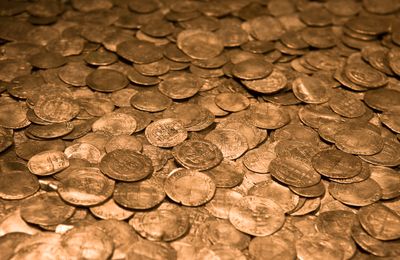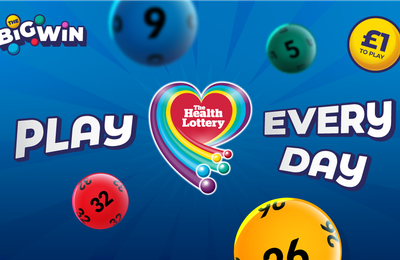The Health Lottery operates on behalf of The Health Lottery Foundation, PO BOX 8109, Daventry, NN11 1JA. Promoter: Delva Patman.
When did the UK lottery start?
There are many lotteries around the world today. More than 100 countries have big government-operated lotteries, and that doesn’t even include the smaller, privately-run ones and the now almost ubiquitous society-run charity lotteries.
Just like everything else, UK lotteries do have a history, and a very interesting one at that. We’ve done our research and found that the British tradition of a national lottery can be traced back to the 16th century, proving that using a lottery to raise money for a good cause is nothing new.
When did the lottery start in the UK?
Historical evidence suggests that the first official lottery to take place in the UK began in 1569! That makes the lottery in the UK more than 450 years old.
The first lottery was commissioned by Queen Elizabeth I in 1566 in England.
A letter written by the Virgin Queen nearly five centuries ago has emerged which marks the beginning of lotteries in the UK. The letter, which includes a blind embossed paper seal with her distinctive, flourishing signature, was written to Sir John Spencer, giving him instruction to issue books of numbers and tickets. A total of 400,000 lots were made available, each costing 10 shillings.
The letter reads:
“Where we have com[m]anded a certaine carte of a Lotterie to be published by our Shirif of Countie in the principall townes of the same.”
All for a good cause
Britain’s first lottery was, as with today’s charity lotteries, intended for a good cause. Elizabeth needed financial support for the expansion of Albion’s export markets around the world and the lottery was to raise money to build ships and develop ports.
The Queen wrote that the funds raised shall be “employed to good and publique acts and beneficially for o[u]r Realme and o[u]r Subjects.”
The first lottery prizes
The £5,000 jackpot, equivalent to close to £900,000 today, was paid out in money and tapestries, expensive linen, as well as other prizes. The Queen commanded that persons of “good trust” be entrusted with the prizes.
The letter specified that “WHOSOEVER shall winne the greatest and most excellent price, shall receive the value of Five thousande Poundes sterling.” This was paid out in “Three thousande Pounds in ready money,” as well as a variety of merchandise: “Seven hundreth Poundes in Plate gilte and white, and the rest in good Tapissarie meete for hangings and other covertures, and certaine sortes of good Linnen cloth.”
A total of eleven prizes were awarded, made up of varying amounts of money and merchandise.
A delay in plans
It took quite some time for the novel idea of a national lottery to gain support among the masses, especially with 10 shillings being way too much for the average citizen to afford. The Queen sent her instructions to Sir John Spencer, promising him an incentive of 50 shillings for every £500 pounds sent to London.
To encourage as many people as possible to buy tickets, England’s first ever lottery was advertised to the public in 1567. The advertisement promised all ticket holders freedom from arrest for all crimes other than “murder, felonies, piracy or treason.”
The advertisement even offered incentives for the first three people who bought tickets: “THE FIRST person to whome any Lot shal happen, shal have for his welcome (bysides the advauntage of his adventure) the value of fiftie poundes sterling in a piece of sylver Plate gilte.”
The second and third rewards were slightly smaller.
However, due to the challenging logistics in selling the tickets around the country, the lottery was not an instant success and the draw was not held until three years later, in 1569.
This lottery eventually died out, but there were similar draws held between 1750 and 1826. Today, of course, it’s easy to recognise the value of this pioneering venture, with a range of UK lotteries available.
When Did The National Lottery Start?
The National Lottery began in 1994 – with the first draw taking place on November 19th.
The draw was broadcast live on the BBC and was presented by Noel Edmonds and Anthea Turner. Incredibly, the broadcast was watched by 22 million people. Given that the population of the UK in 1994 was 57.8 million people, that means over 38% of Britain watched that first draw!
The winning numbers were: 30, 3, 5, 44, 14 and 22, with 10 as the bonus ball. The jackpot that night was over £5.8 million and was shared between seven winners.
When did The Health Lottery start?
The Health Lottery is not a national lottery but a charity or society lottery which began in 2011 – it was launched in October of that year. The results were broadcast live on ITV.
Since launching in 2011, The Health Lottery has helped raise over £132,000,000 for health-related projects across Great Britain. You can read more about the good causes that we support here.
Play The Big Win to be in with your chance of winning up to £100,000. Or play All or Nothing or QuickWin for the chance to win £25,000. They all cost £1 to play - the same as The Health Lottery cost to play when it launched! Just make sure you're happy and enjoying yourself and playing responsibly.












